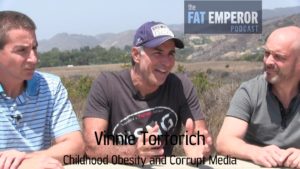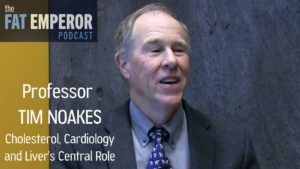“Slimology – The relatively Simple Science of Slimming” by Sam Feltham
http://www.amazon.com/Slimology-Relatively-Simple-Science-Slimming-ebook/dp/B00Q4N5F52
It is with great pleasure that I post this short review of Sam’s excellent slimming synopsis, after reading it through in one enjoyable sitting; in short it is a great resource, especially for those who want to get painlessly through the supporting science and promptly to the correct approaches – there are many texts that primarily just prescribe a faith-based “what-you-should-eat” formula, and there are also many that expound greatly on all of the technical details behind our current Diabesity epidemic, for the tech-hungry consumer who wants all the gory details; I believe there is a big market for a middle-ground text that balances both approaches, and Sam has unerringly hit the target on the latter.
This book achieves a difficult goal as described, doing justice to the key scientific principles underlying our epidemic of ill-health, while briefly and entertainingly summarising the politico-academic knavery that has ultimately delivered a sweaty, lumbering, pill-popping population; most importantly, the final chapters deliver a simple, actionable dietary & exercise regime that will deliver the required results – because correctly applied science doesn’t fail.
Sam starts with highlighting the philosophical approach that can and indeed must be adopted when analysing any complex question to get to the ultimate truth, leveraging from Socrates himself no less; essentially this involves striving to disprove your existing hypothesis, and in doing so weeding out errors to arrive at a greater understanding. He goes on to provide a perfectly concise rendition of Ancel Keys outrageous pseudo-science rampage that led to the incorrect Diet-Heart hypothesis being embraced by the western world, contributing in no small part to our current nutritional mess. The text is speckled with lovely analogies, one of my favourites being the ”baby duck syndrome” phenomenon, which illustrates how the human race has become trapped in the flawed concept of “energy balance”, and cannot escape from it in spite of the available evidence.
Sam goes on to succinctly describe some of the key experiments carried out in the past decades, again hitting on some of choice examples like the 12 Twins experiment from Claude Bouchard, which illustrates so clearly that weight gain is governed by complex biochemical factors, not the asinine idiocy of “calories in, calories out” that we hear parroted by befuddled orthodoxy; he then covers his own n=1 experiment which elegantly illustrates the pivotal difference between energy from fat versus energy from carbohydrate in terms of physiological effects. He also delivers an important insight about the current population state: now that the people have been mostly consuming excessive refined carbohydrate for generations, they are generally not capable of consuming large amounts of even “good” carbohydrate – in engineering terms we would say that they have become “sensitized” to carbohydrate at this point, and the only course of action is restriction of the offending substrate; in other words, get with the program guys – there’s only one dietary show in town, unless you want to waddle into the wards as the years go by…..this is the fundamental reality with the damned food pyramid approach.
The next chapter is an excellent summary of results from properly-executed Low Carb versus Low Fat diets carried out over the years; Sam highlights that the Low Carb guys were allowed eat what they wanted, while the Low Fat guys counted calories and restricted; in spite of this imbalance, Low Carb invariably fared better in practically all metrics, as would be expected from the science covered earlier. A key point that he stresses is the relative sense of satiety experienced by the Low Carb individuals, and the greatly improved adherence to diet that they achieved resultant. Helpful for many people will be his sink-and-tap analogy to get across the concept of why “fake foods” and excessive carbohydrate are key in the failure to maintain an optimum weight….
In the following chapters Sam covers many core points that are important to understand, for example: that exercise is very healthy, but won’t really help in the weight loss game; that Low Carb helps greatly with fat loss specifically, but this can be optimised with moderate resistance training; that Low Carb athletes maintain a greatly improved fat-burning engine with many associated benefits. Experimental examples are peppered throughout to show the evidence behind all assertions – great stuff.
In the penultimate chapter, Sam captures details of the best approach for the layperson to achieve lasting weight loss and healthy metabolism – for those wanting the bottom line without all the fluff attached to commercially-minded diet programs, this is a one-stop-shop; I firmly believe if this approach is internalised and applied, there will be very few who do not benefit from it, and the simple nature of the advice and food plans should make them very easy to internalise and adopt. The closing chapter captures all of the key pitfalls that cause people to lose their way – again you aren’t inundated with rules here, and covered are the same set of risk areas that I have been explaining to many people over the past year…
In closing, the process of achieving healthy weight and optimised metabolism doesn’t have to be a complex multi-factor science experiment for the average person, in spite of the complexity playing out behind the scenes. Sam has made the whole challenge approachable, understandable and eminently executable – and as such, this great book certainly lives up to its name – well done Sam!







